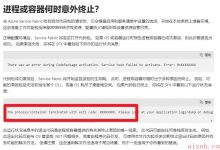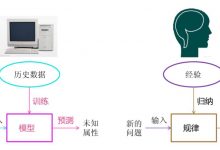Airbnb短租
原始数据
需要用到的数据集,如下图。数据集中包含的数据是比较丰富。能从多个维度进行探索。
了解数据
导入数据
数据量最大的要数calendar_detail,里面包含一千万条数据,内容是每个房屋每天情况。其次是listings_detail和listings更多的是用户的评价。
import pandas as pdimport numpy as nppath1=\'/home/jhon/Desktop/DATA/renting/calendar_detail.csv\'path2=\'/home/jhon/Desktop/DATA/renting/listings_detail.csv\'path3=\'/home/jhon/Desktop/DATA/renting/listings.csv\'path4=\'/home/jhon/Desktop/DATA/renting/reviews.csv\'path5=\'/home/jhon/Desktop/DATA/renting/reviews_detail.csv\'calendar=pd.read_csv(path1)listings=pd.read_csv(path3)reviews=pd.read_csv(path5)
基本信息
calendar_detail所包含的字段名。特别注意,价格是用美元计算,而且面前还有“$\”,所以需要对他们进行处理。
calendar.head(2)#运行结果listing_id date available price adjusted_price minimum_nights maximum_nights0 1165040 2019-04-17 f $511.00 $511.00 1.0 1125.01 1165040 2019-04-18 t $511.00 $511.00 1.0 1125.0
listings的字段
listings.columns#运行结果Index([\'id\', \'name\', \'host_id\', \'host_name\', \'neighbourhood_group\',\'neighbourhood\', \'latitude\', \'longitude\', \'room_type\', \'price\',\'minimum_nights\', \'number_of_reviews\', \'last_review\',\'reviews_per_month\', \'calculated_host_listings_count\',\'availability_365\'],dtype=\'object\')
reviews的字段
reviews.columns#运行结果Index([\'listing_id\', \'id\', \'date\', \'reviewer_id\', \'reviewer_name\', \'comments\'], dtype=\'object\')
这些基本信息很重要。
数据清洗
查看数据是否有空值,最简单粗暴的方法直接删了。这里就删了,整个数据样本有一千万条数据,不会有大的影响。
calendar.isnull().sum()listing_id 0date 0available 0price 0adjusted_price 0minimum_nights 358maximum_nights 358dtype: int64
同时日期的格式也更改了一下。
calendar1=calendar.copy()calendar1.dropna(inplace=True)calendar1[\'date\']=calendar1[\'date\'].astype(\'datetime64\')
这步就需要把美元符去掉,同时要更改格式,修改成数值。在去除美元符后,还有千分符,这也必须处理。
price和adjusted_price是不同的,adjusted_price是优惠价格,但基本上没有差别。简单起见价格就采用price字段。
calendar1[\'price\']=calendar1[\'price\'].str.split(\'$\',expand=True)[1]calendar1[\'adjusted_price\']=calendar1[\'adjusted_price\'].str.split(\'$\',expand=True)[1]calendar1[\'adjusted_price\']=calendar1[\'adjusted_price\'].str.replace(\',\',\'\').astype(\'float\')calendar1[\'price\']=calendar1[\'price\'].str.replace(\',\',\'\').astype(\'float\')
房屋维度
数据整理
探讨方向是很多的,先以房屋为主体进行分析。
calendar_g=calendar1.groupby(by=\'listing_id\').mean()a=pd.merge(calendar_g,listings,left_on=\'listing_id\',right_on=\'id\')a[\'neighbourhood_group\'].isnull().count()house=a[[\'id\',\'room_type\',\'minimum_nights_x\',\'maximum_nights\',\'longitude\',\'latitude\',\'price_x\',\'price_y\',\'reviews_per_month\',\'availability_365\']]house.eval(\'rate=price_x/price_y\',inplace=True)
对不同价位的房屋进行分类。
house[\'level\']=pd.cut(house[\'price_x\'],bins=[0,200,400,600,800,1500,3000,8000,50000],labels=[1,2,3,4,5,6,7,8])house[\'level\'].value_counts()#运行结果2 92883 69701 47074 31995 24896 11177 5638 104Name: level, dtype: int64
数据可视化
地区分布
这里数据的可视化我用Tableau,当然你也可以plotly以及pychart等。如下图
镜头拉近看市区的房屋分布!!!

在分析过程中发现一下规律:
- 集中的主要区域在市中心附近;
- 房屋等级越高,分布的越是分散;
- 即便是北京市区,也是存在很高的聚集度。
对此认为,集中在市中心附近正常,此区域人口密度较大,对房屋的需求也较大。房屋等级越高,分布越分散。原因可能是具有更高消费能力的人,更喜欢在远离城市的地方,放松及修养。
不同类型房屋的数量和价格
这里按照房屋的价格,划分了8个等级,但是房屋的来源类型有三种。
从这里可以看出,等级1、2、3、4占了绝大部分。
利润率

这里的真实价格来源于calendar_detail,而实际来源于listings_detail。真实价格每天是在波动的,可能到节假日涨价,淡季价格降低一点,这都是可能的。listings_detail是平均价格,或者成本价。姑且就按照实际价格算或者成本来算。
从图中很明显的看出,等级越高的房屋,利润率越高。而按照不同房屋类型看,Shared room利润率是最高的。但这具体是什么原因,就需要结合实际的业务进行分析了。
时间维度
以下是从时间维度对数据进行分析。先对数据重新分组,然后聚合。
calendar2=calendar1[[\'date\',\'listing_id\',\'price\']]calendar2[\'level\']=pd.cut(calendar2[\'price\'],bins=[0,200,400,600,800,1500,3000,8000,50000],labels=[1,2,3,4,5,6,7,8])calendar2[\'year\']=calendar1[\'date\'].dt.yearcalendar2[\'month\']=calendar1[\'date\'].dt.monthcalendar2[\'day\']=calendar1[\'date\'].dt.dayb=calendar2.groupby(by=[\'level\',\'year\',\'month\']).agg({\'date\':\'count\',\'price\':\'mean\'})b=b.dropna()b=b.reset_index()
b#运行结果level year month date price0 1 2019 4 75776 146.7957801 1 2019 5 163579 146.4055042 1 2019 6 159471 146.1669083 1 2019 7 163156 146.1441014 1 2019 8 163746 146.820570... ... ... ... ... ...99 8 2019 12 3278 13714.726052100 8 2020 1 3158 13337.024066101 8 2020 2 2954 13336.299932102 8 2020 3 3148 13337.912961103 8 2020 4 1513 13361.962327104 rows × 5 columns
时间维度需要注意,2019年4月和2020年4月之所以下降幅度特别大,是因为这两个月的数据,只取了半个月数据。
总结
本次的数据特征太少,不足以探究,短租房价的影响因素。这里可能只有经纬度和价格,但相关性还比较低,就不继续探索了。
 爱站程序员基地
爱站程序员基地
![[翻译] Backpressure explained — the resisted flow of data through software-爱站程序员基地](https://aiznh.com/wp-content/uploads/2021/05/4-220x150.jpeg)

